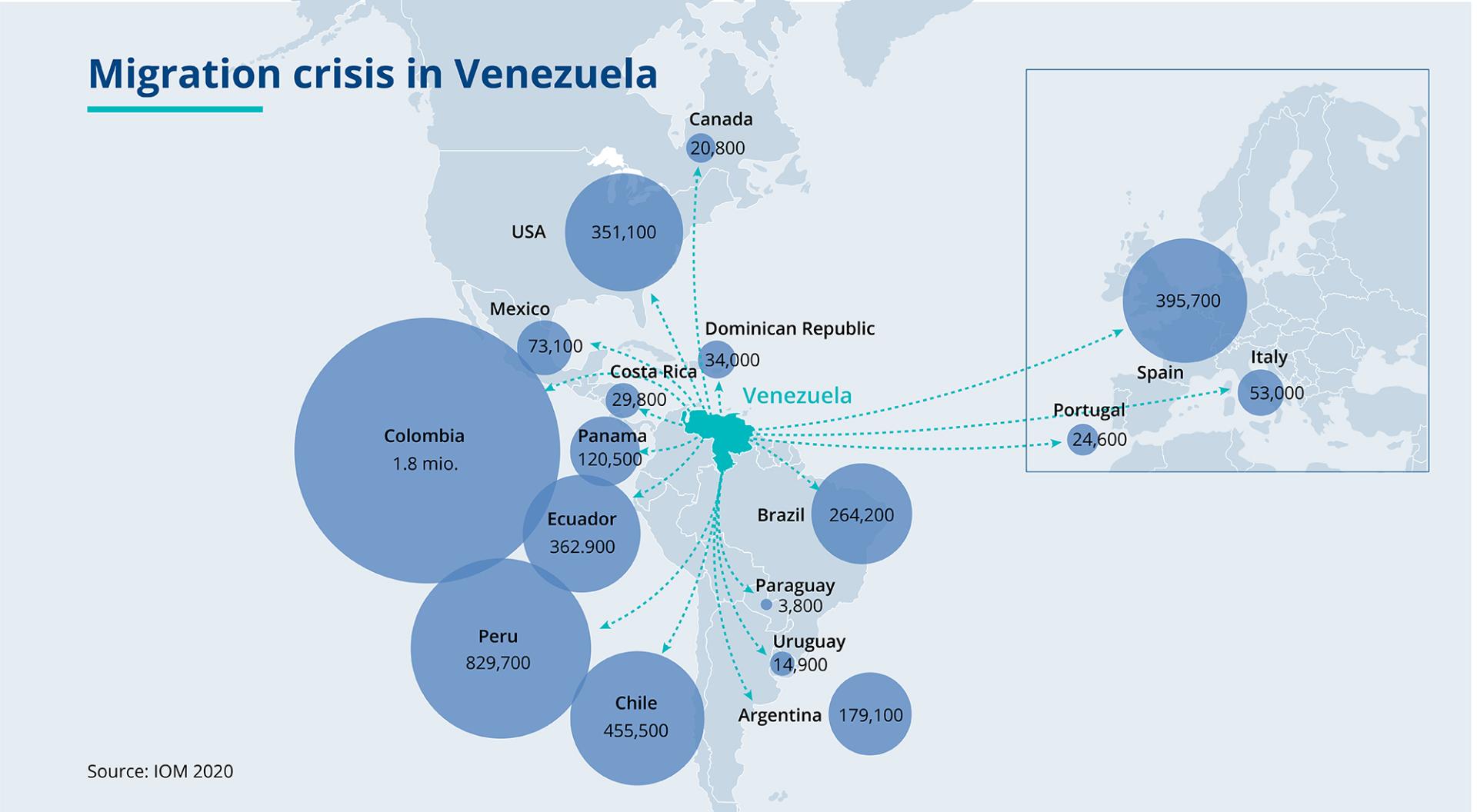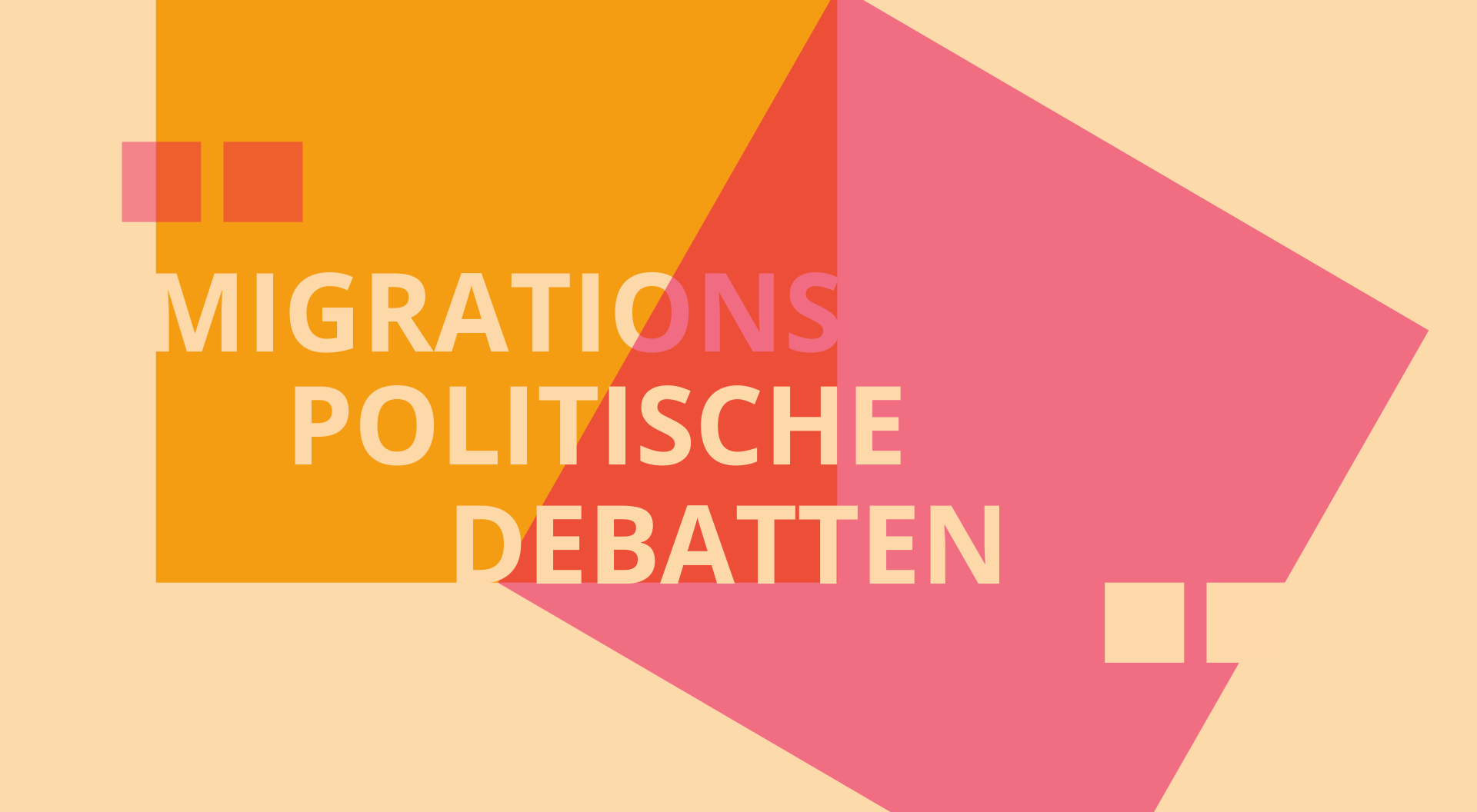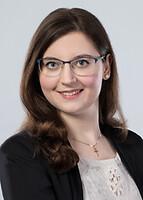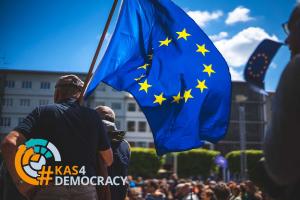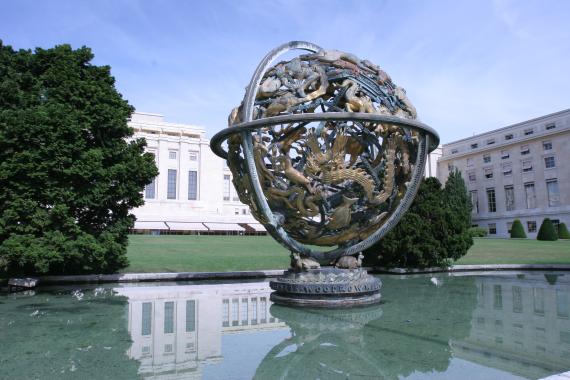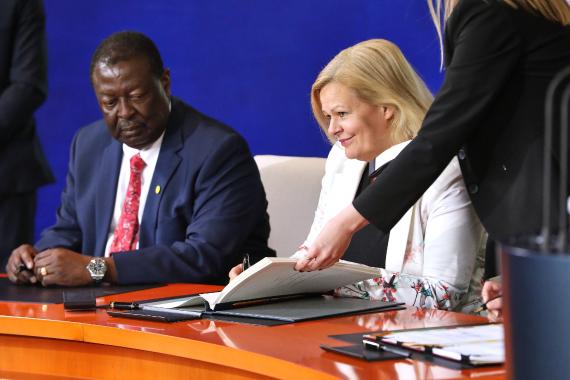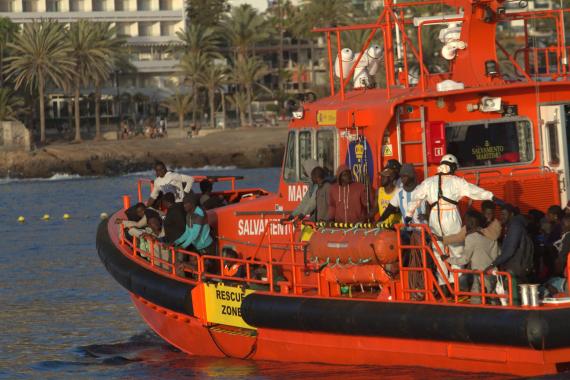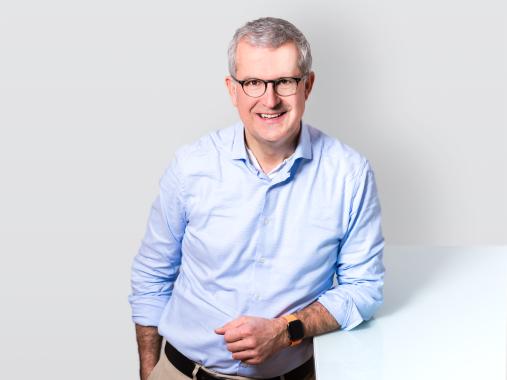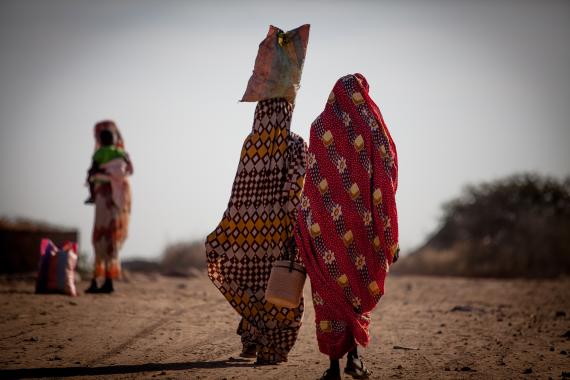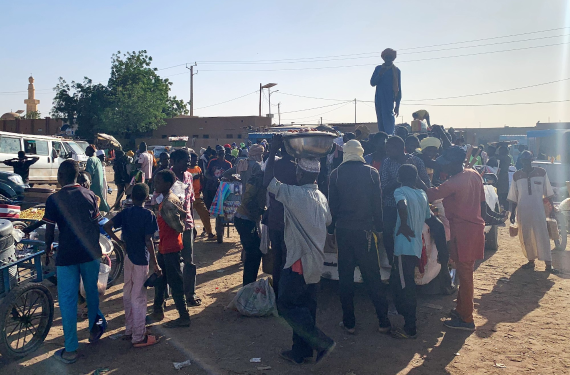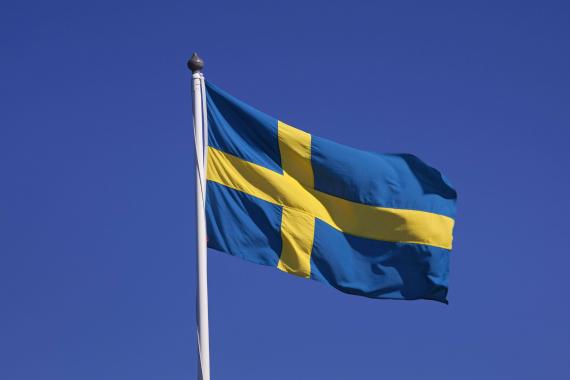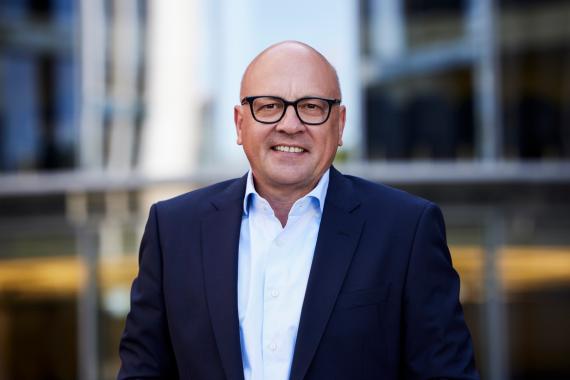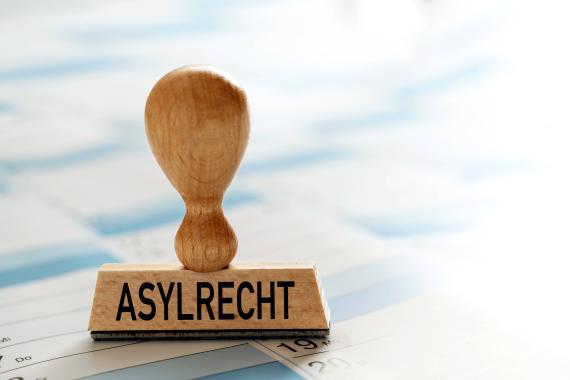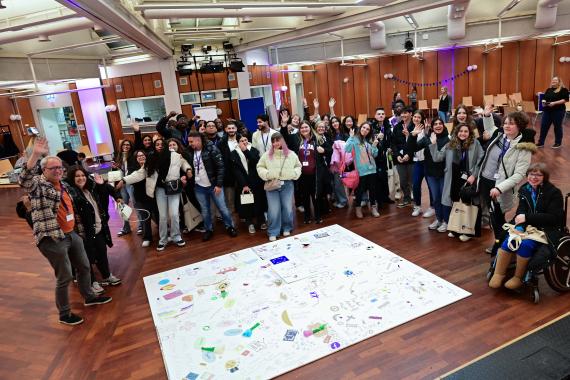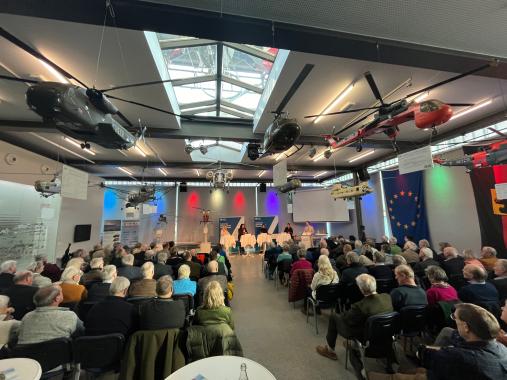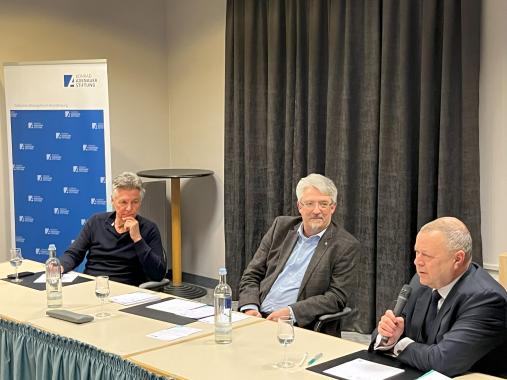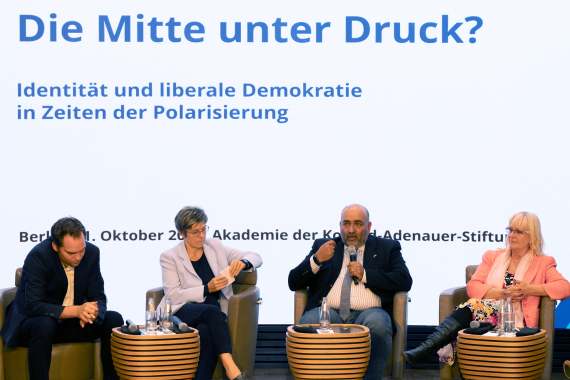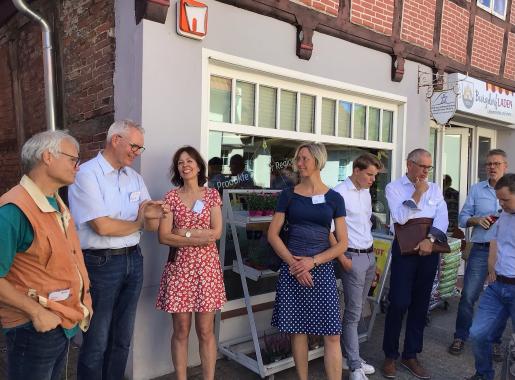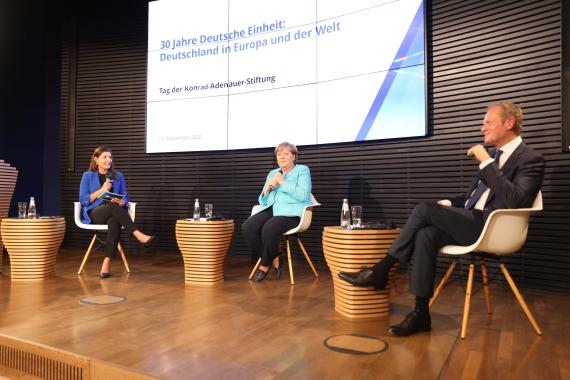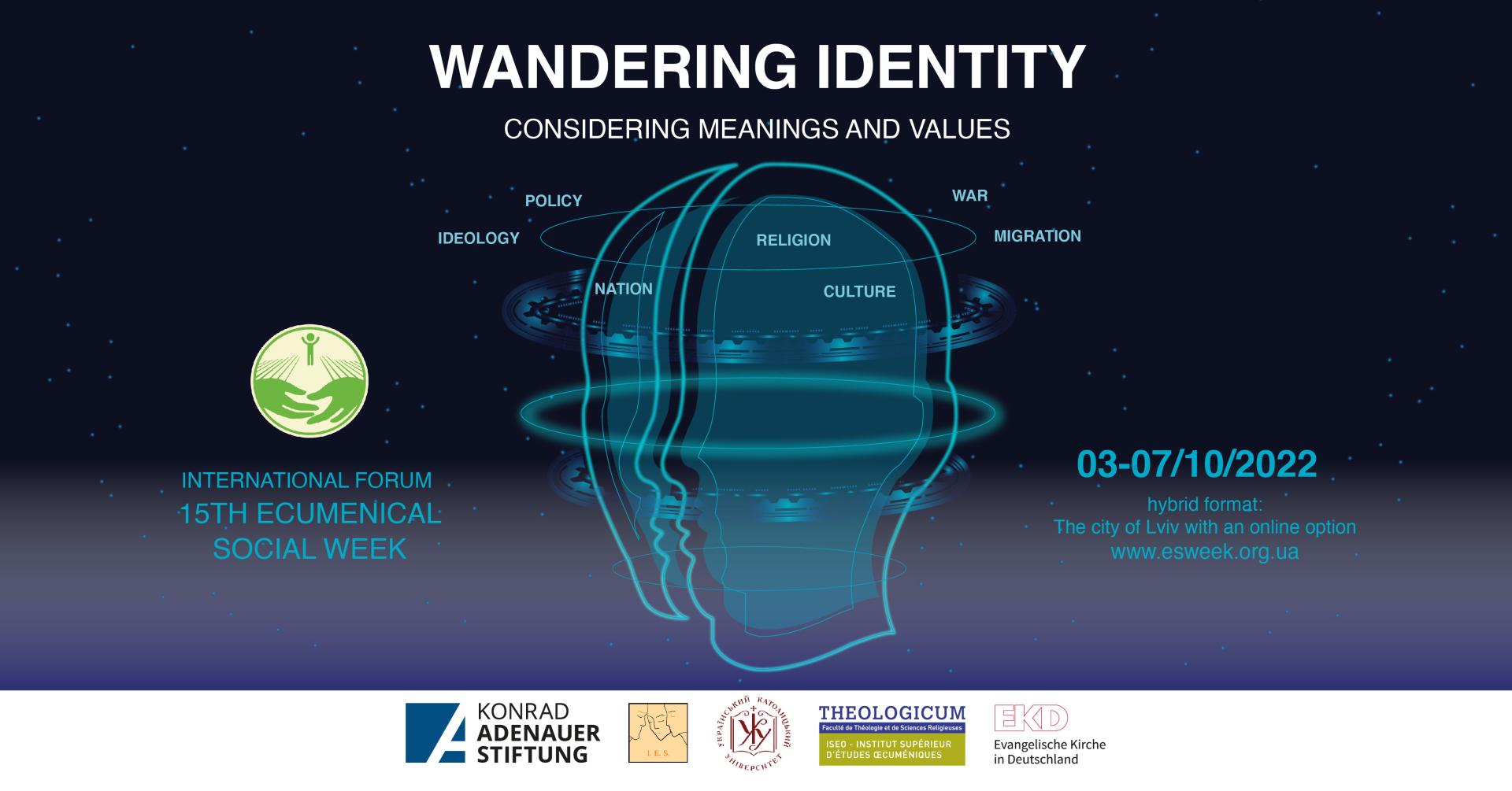Politics starts with looking at reality.
At a glance
- In recent years, more people than ever have left their homes around the world for a wide variety of reasons.
- The Russian war of aggression against Ukraine has triggered the largest refugee movement in Europe since the Second World War. At the same time, irregular entries into the European Union have increased recently.
- Complementary national and multilateral measures as well as partnership-based approaches are proving to be particularly promising when managing migration.
- For Germany, the integration of migrants into society and the labour market is a major challenge for the future. In addition, labour migration from non-EU countries is becoming increasingly important.
- The Konrad-Adenauer-Stiftung addresses controversial migration issues through conferences, expert meetings and contributions from politics, academia and civil society.
Content
1. New cooperation approaches required
2. Integration as a major task for the future
3. European and international perspectives as a starting point for our work
4. Our offers and projects on the topic
5. Publications, events and media contributions on the topic
New cooperation approaches required
In recent years, more people than ever have left their home for a wide variety of reasons: Some are fleeing violent conflicts and persecution, others are migrating due to political insecurity, threatening social developments, inadequate handling of environmental disasters or economic hardship.
The Russian war of aggression against Ukraine has triggered the largest refugee movement in Europe since the Second World War. Since then, more than one million people from Ukraine have found refuge in Germany. In addition, multiple crises, wars and conflicts in Europe's southern neighbourhood and in the Middle East are contributing to increased numbers of irregular migration and asylum applications in the European Union.
Against this backdrop, political decision-makers in Germany and Europe are struggling in managing migration. Complementary measures at national, European and international level as well as partnership-based approaches along migration routes are required.
This involves the question of how national interests and international refugee protection can be harmonised.
Integration as a major task for the future
The integration of immigrants into society and the labor market is an important domestic policy task for the future.
Germany has taken in almost two million people for humanitarian reasons in 2022/2023. However, German municipalities are facing different conditions than in 2015/2016: tight financial situation, increasing pressure on social systems and infrastructure as well as cultural and security policy challenges are making it more and more difficult to host and successfully integrate migrants and refugees.
At the same time, the German economy is facing challenges in attracting international talent from outside the EU. Against the backdrop of ongoing demographic change in Europe, qualified immigration from non-EU countries would have to increase significantly in the future to meet labour market needs.
European and international perspectives as a starting point for our work
How can migration and integration be successfully organized in Germany as a country of immigration? How can the right balance be struck between humanity and order, between support and demands?
The Konrad-Adenauer-Stiftung addresses challenges in the field of migration and integration together with experts from academia, politics and civil society to develop sustainable solutions by focusing on European and international comparison and exchange.
Our offers and projects on the topic
Publication projects
In addition to individual publications on specific aspects of flight, migration and integration, the Konrad Adenauer Foundation is interested in examining complex interrelationships from different perspectives. For this reason, we publish larger publication projects or multi-part publication series at irregular intervals, which approach the multi-layered problems of the topic from different angles.
Migration Policy Debates
The interview series “Migration Policy Debates” deals with current controversial migration policy issues. Each issue is centered around a central theme which is addressed by three experts from different fields. Representatives from politics, academia and civil society discuss domestic and foreign policy aspects and formulate policy recommendations.
Scholarship offers
For people from migrant backgrounds, the Konrad-Adenauer-Stiftung offers specific opportunities for orientation and support with personal and professional development with the ‘High-Flyers’ and ‘scholarships for refugees’.
Study Mentoring Programme High-Flyers
You too can become a high-flyer!
Youtube, Onlinekas
The Konrad-Adenauer-Stiftung’s study mentoring programme High-Flyers, offers young dedicated and talented people from families without academic experience or with a migration background support on their way to university.
Scholarship holders and young former scholarship holders help with important and essential questions on everything related to universities of applied sciences and universities, and provide guidance during the transition from school to university.
Be it opportunities for student financing, choosing a subject or general information about a degree – our scholarship holders and former scholarship holders know exactly what it takes and are at hand as personal contacts in the framework of corresponding study mentoring, thus enabling insights into everyday student life.
Scholarships for Refugees
As a refugee in Germany, you are entitled to study apply for a scholarship under special legal conditions. We look forward to supporting you in your professional and personal development, and gladly welcome talented new scholarship holders who actively enrich and help shape the progress of our society.
Learn more about the scholarships for refugees (English only)
Special initiative
The Konrad-Adenauer-Stiftung is cooperating with political decision-makers and civil society actors in the main destination states for Venezuelan refugees as part of the BMZ (Federal Ministry for Economic Cooperation and Development) funded special initiative “Fighting the Causes of Flight, Reintegrating Refugees in Latin America.”
Fighting the Causes of Flight, Reintegrating Refugees
With the BMZ-funded special initiative, the Konrad-Adenauer-Stiftung is attempting to contribute towards successfully managing the refugee crisis in Venezuela. In this context, our country offices in Columbia, Peru, and Child promote joint exchange with a broad network of partners and engage in dialogue with local responsible players from politics, business and management as well as representatives of the refugee community on effective measures for successful integration.
